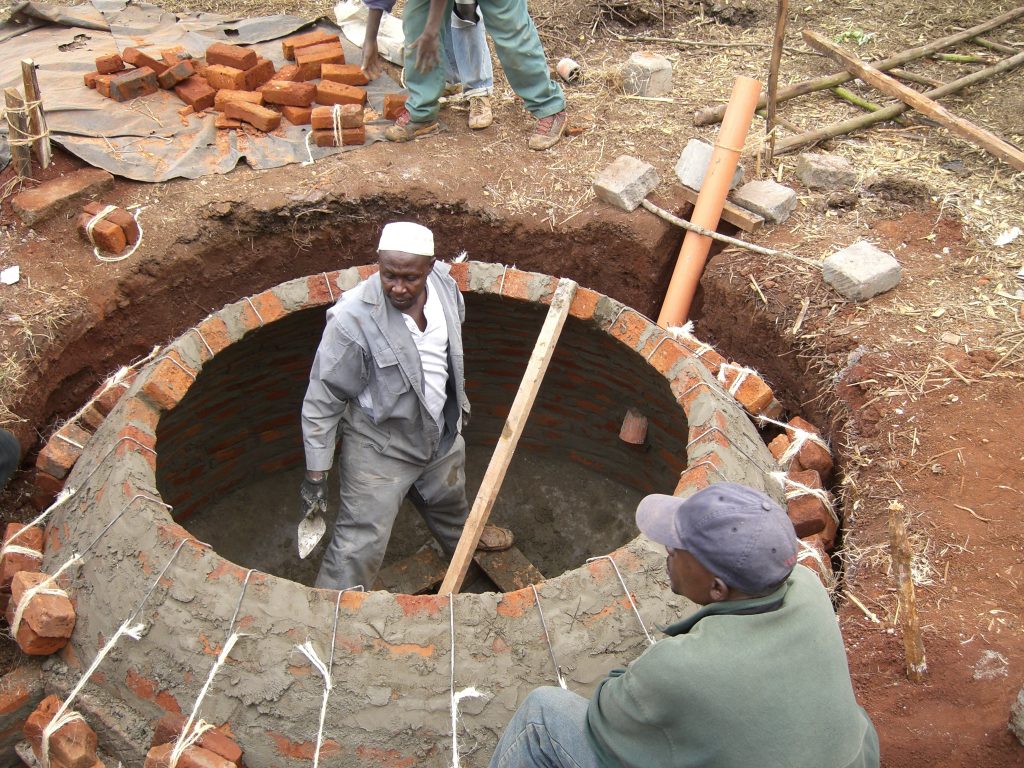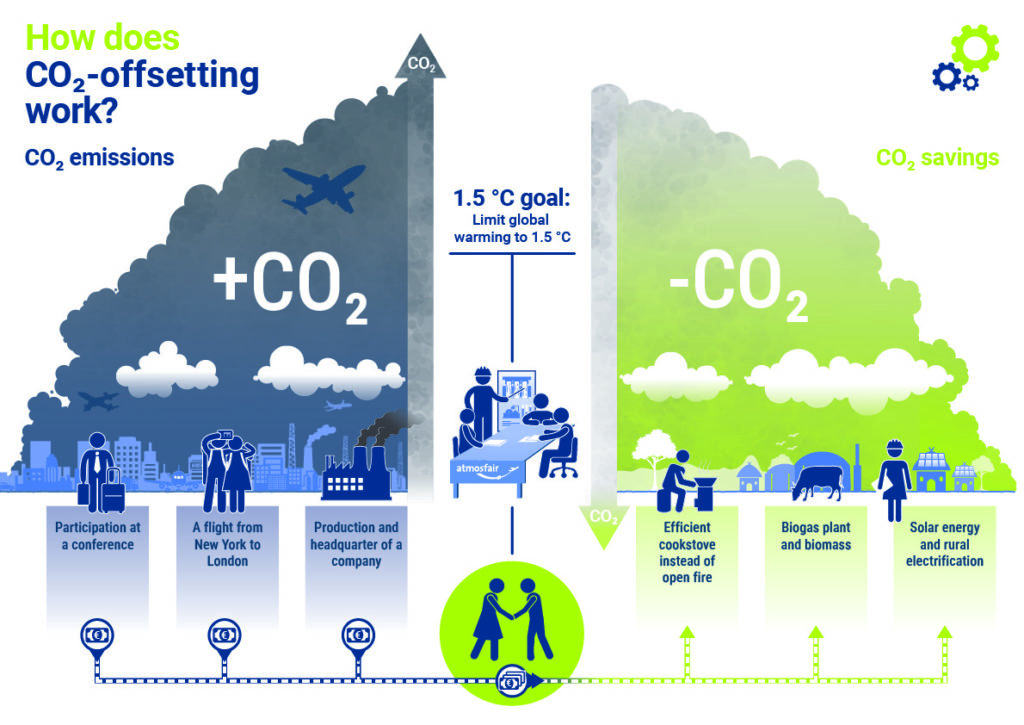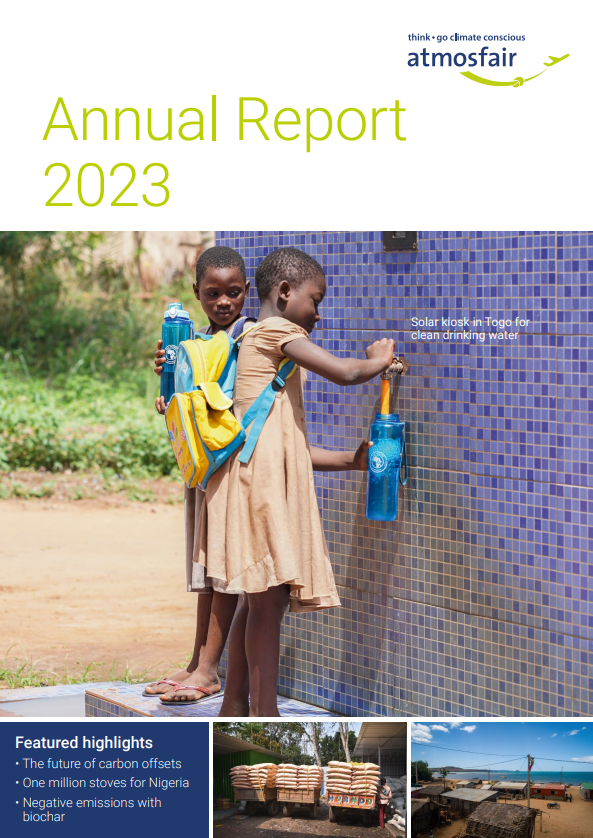Climate-friendly air travel
atmosfair is a German non-profit organization that actively contributes to CO₂ mitigation by promoting, developing and financing renewable energies in over 20 countries worldwide. We rely exclusively on voluntary climate payments from private individuals and businesses. Aiming to decarbonize the world economy, we designed our software tools and consulting services to assist businesses in executing their climate policies, with a particular focus on business travel.
Our work ethic is based on the following principle: only compensate what can’t be avoided or reduced. This approach constitutes the foundation for all our partnerships, ensuring not only climate integrity but also cost efficiency.
Climate protection: the inevitable great transformation
With our increasingly globalised society comes more mobility, both in business as well as in private life. With all of globalisation’s advantages, its climate impact cannot be ignored: until the year 2100, Earth’s atmosphere can only handle a limited amount of CO₂. Since most modern means of transportation run on fossil fuels, further growth in mobility will quickly outstrip the bounds of climate compatibility.
Organisations like the German Advisory Council on Global Change (WBGU) have shown the urgent need to radically transform our entire society in order to protect the environment. Technological innovations, such as renewable energies, are a necessary component of this transformation, as is the more conscious use of natural resources. However, it is already clear that the process is transpiring too slowly, harming the environment and negatively impacting people the world over.
Emphasis on air travel
atmosfair performs an important task in this transformation process. No technical solution for air travel, such as unproblematic biofuels or a zero-emissions plane, exists as yet. Someday, there will be a renewable option for the air travel industry, perhaps a solar hydrogen airplane, just as the railway already offers a train ticket guaranteeing the use of renewable energies and the energy sector builds small hydropower stations and wind turbines. However, as long as this solution and other climate-friendly alternatives do not exist, airplane passengers can offset their flight emissions with atmosfair.
Offsetting as a contribution to climate protection with added value to people worldwide
Airline passengers make a voluntary climate protection payment based on the amount of emissions they create; atmosfair uses these contributions to develop renewable energies in countries where they hardly exist, above all in developing countries. In this way, atmosfair saves CO₂ that would otherwise be created by fossil fuels in these countries. Meanwhile, local people profit since often for the first time, they gain access to clean energy available around the clock, which is a must for education and creating equal opportunities.

Prevention, reduction, offset
Offsetting cannot solve the problem of climate change since it does nothing to change the actual source of CO₂. It is a necessary second-best solution as long as the best solution does not yet exist. Individual flight passengers are responsible for examining their actions prior to offsetting emissions. For example, sometimes a videoconference instead of a business trip suffices, a longer vacation can take the place of two shorter ones, and with atmosfair, you can find out which airlines operate most efficiently.
Cooperation with companies: from CO₂ reports to cost reduction
atmosfair cooperates with the travel sector worldwide in order to strengthen climate protection in the industry. Our partners are tour operators, airlines, airports, travel agencies for leisure and business travel, organisations such as the German Travel Association (DRV) and the German Business Travel Association (VDR), as well as travel media like guidebooks. One of our areas of focus is helping companies with many business trips, from preparing a comprehensive CO₂ report of their travel to tailored measures in travel management. This not only saves CO₂ emissions, but also money – and not least improves employee satisfaction.




 Share
Share Tweet
Tweet